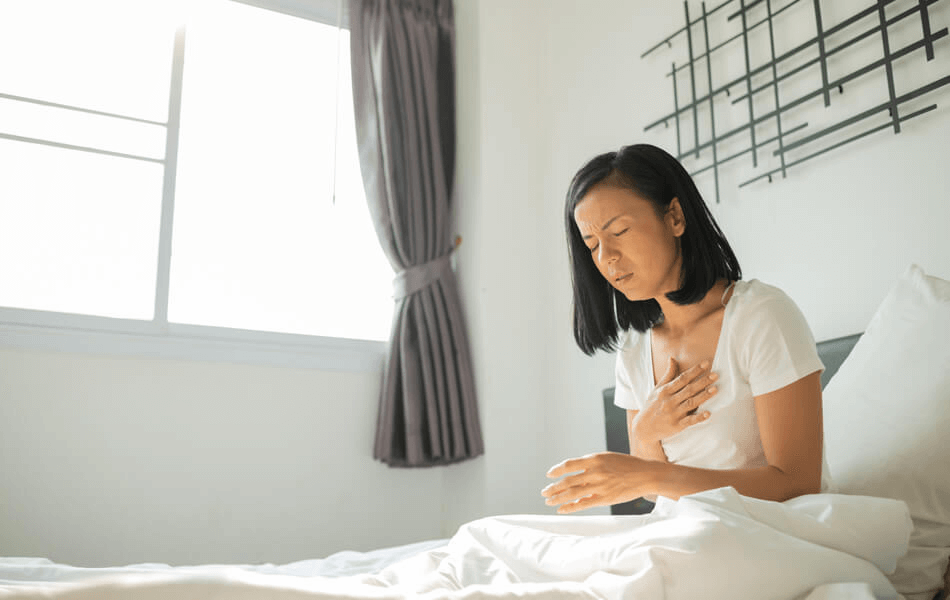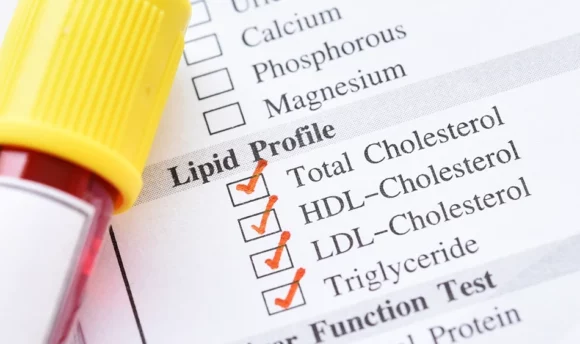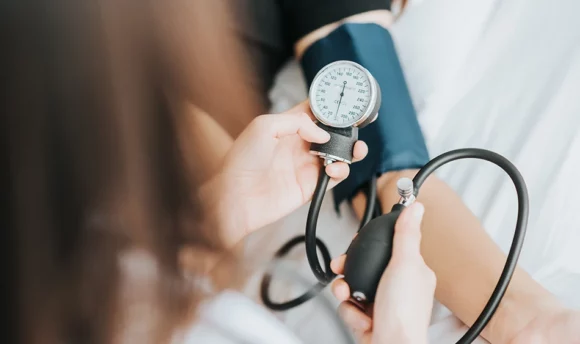Why Is My Blood Pressure High in the Morning? Morning Hypertension Explained
Your blood pressure can fluctuate throughout the day due to various lifestyle factors. If you’re noticing abnormally high blood pressure readings first thing in the morning, you might feel concerned. Read on to find out all about morning hypertension, warning signs, and how to manage it.

Blood pressure is the pressure of blood pushing against your artery walls as the heart pumps blood to your blood vessels. For most healthy adults, it’s normal for blood pressure readings to fluctuate between hours and minutes of the day.
Typically, your blood pressure begins to rise as you wake up and continues to do so until it peaks around midday. It usually drops at night as you sleep.
And while fluctuations within a safe range aren’t usually a cause for concern, unusually high blood pressure upon waking up could signal a problem.
Morning hypertension can trigger cardiovascular events, including heart attacks and strokes. If you have an abnormal blood pressure pattern, it’s important to learn how you can prevent and manage it.
This article identifies the importance of knowing your blood pressure, reasons why it might increase in the early hours, and hypertension symptoms to monitor.
Why Is Knowing Your Blood Pressure Important?
An awareness of your blood pressure is essential in managing your overall health. Checking it regularly can help diagnose any issues with your health as soon as possible. Blood pressure management is crucial if you are at higher risk of heart disease and other conditions.
Risk factors include certain lifestyle factors, medical conditions, and family history. Taking a blood pressure reading informs you of whether you have high or low blood pressure. High blood pressure doesn’t tend to have noticeable symptoms. Therefore, measuring your blood pressure is the only means to determine for sure if yours is high or normal.
If you can identify hypertension, you can take steps to return to normal blood pressure. In doing so, you reduce your risk of heart attack and other health issues. A healthy diet, stress management, and increased physical activity might help you lower your BP significantly.
Why Is My Blood Pressure High in the Morning?
Higher blood pressure in the morning hours is known as morning hypertension. Many people experience morning hypertension. Generally, your blood pressure begins to incline in the early morning before you wake up. The morning increase is due to your body’s normal circadian rhythm.
Circadian rhythm is the natural internal process that regulates your sleep and waking cycle. It refers to the physical, mental, and behavioral changes that take place during this time.
However, a morning surge is considered an abnormal blood pressure pattern.
Several factors can impact your BP pattern. In most cases, it results from health conditions, poor lifestyle choices, and medications. Getting to the bottom of it can make it easier to control morning hypertension. Here are some possible health conditions that could lead to higher BP.
#1 Health conditions that can cause hypertension
Many medical conditions can be the cause of it. Here are a few of them:
- Diabetes
- High cholesterol
- Sleep apnea
- Kidney disease
- Thyroid disease
- Untreated hypertension
- Cardiovascular disease
- Nervous system disorders
#2 Lifestyle factors
A healthy lifestyle with regular exercise and a nutritious diet is essential in sustaining normal blood pressure. Certain lifestyle factors can directly affect your blood pressure pattern. The following factors are some common examples.
- Poor diet (diets high in salt and saturated fat can increase your risk of hypertension)
- Smoking
- Drinking alcohol
- Lack of physical activity
- Night shift work
- Stress
- Obesity and carrying excess weight
- Failure to take blood pressure medications
#3 Medications
Medication can be the culprit of developing hypertension, both prescription and non-prescription. Some even interfere with medications prescribed to control morning hypertension. In some cases, the dosage of antihypertensive medications is too low.
You should contact your doctor immediately if you think your medication may be causing morning hypertension. You mustn’t adjust medication yourself without medical advice.
When Should You Take Your Blood Pressure in the Morning?
Take your blood pressure after about an hour after you wake up. Take measurements twice a day, once in the morning (morning blood pressure) and again in the evening (nocturnal blood pressure).
You should take the first measurement in the early morning before eating breakfast, taking any medications, or exercising. However, you should not take the measurement immediately upon waking up.
For a more accurate result, it’s best to take 2–3 readings, one minute apart. It is also helpful to take the measurements at the same time each day to identify your daily pattern. That way, your healthcare team can figure out your average BP.
Sit upright with your legs uncrossed and feet flat on the floor when taking the reading.
What Should Blood Pressure Be in the Morning?
Consistent morning blood pressure higher than 129/79mmHg indicates morning hypertension.
Your blood pressure reading falls into five categories; normal, elevated, hypertension stage 1, hypertension stage 2, and hypertensive crisis. According to the American Heart Association, normal blood pressure is less than 120 systolic mmHg and less than 80 diastolic mmHg.
Systolic blood pressure is the top number on your reading. It refers to the pressure that occurs when the heart beats. Diastolic blood pressure (the number on the bottom) is the pressure that occurs when your heart is relaxing between beats.
Symptoms of High Blood Pressure
Elevated blood pressure doesn’t usually come with signs, and most people don’t know they have it. However, some people do experience symptoms that can signal a problem. If you have the following symptoms, you should speak to your doctor to confirm or rule out possible hypertension.
#1 Dizziness
Dizziness is not likely caused by hypertension, but it may be a side effect of some blood pressure medications. However, sudden dizziness and feeling unbalanced can be early warning signs of high blood pressure-induced stroke.
#2 Shortness of breath
Shortness of breath can be a telltale sign of pulmonary hypertension, high blood pressure in the blood vessels that carry blood to the lungs. Shortness of breath occurs as the right side of the heart struggles to push blood flow through the lungs.
#3 Headaches
According to the American Heart Association, headaches are unlikely to occur due to hypertension. However, headaches may happen in the case of hypertensive crisis when blood pressure becomes exceedingly high. A hypertensive crisis requires urgent medical treatment.
#4 Nosebleeds
Nosebleeds are another possible symptom of hypertensive crisis, alongside headaches. However, more research is necessary to determine the relationship between nosebleeds and hypertension. High BP may not trigger a nosebleed, but it may be harder to control in hypertensive patients.
#5 Heart palpitations
You may experience heart palpitations from a range of temporary triggers, such as stress, exercise, and too much caffeine. You usually don’t need to worry about palpitations, but occasionally they may indicate a heart problem, such as irregular heart rhythm (arrhythmia).
Heart palpitations may also be a side effect of blood pressure medicines.
Call a doctor immediately if you experience a severe headache, chest pain, or numbness and tingling in your arms. These are immediate warning signs of a heart attack.
How to Lower Blood Pressure in the Morning
Lifestyle can have a significant impact on hypertension overall. To lower your BP, you should practice healthy behaviors such as:
- Eating a balanced diet rich in fruit, vegetables, and whole grains
- Getting regular exercise
- Limiting your alcohol intake
- Quitting smoking
- Mitigating stress and anxiety
- Maintaining a healthy weight
You should also take any BP medications as prescribed by your doctor. If you think your dosage might be the problem, speak to your doctor.
Another way to manage hypertension is with the best blood pressure management apps. Such apps target heart health and might help you resume control over your health with a positive routine, regular monitoring, and real-time insights into your heart’s performance.
FAQs
On average, your blood pressure is highest around midday. Blood pressure fluctuates throughout the day, and it is perfectly normal to get different readings at different times. It tends to rise from the time that you wake up and begins to peak around noon.
Blood pressure is usually lowest during the night while you sleep. After peaking at midday, your blood pressure tends to drop in the late afternoon and into the evening. The measurement taken at night time is known as your nocturnal blood pressure.
Elevated blood pressure at night is known as nocturnal hypertension, and there are several possible causes. Medical conditions such as diabetes, sleep apnea, and kidney problems can trigger a spike. Other causes include lack of exercise, a high-salt diet, and night-shift work.
A Word From Our MD
Morning hypertension is high BP in the morning period. Readings of 130/80mmHg and over signify hypertension. It has a number of possible causes, like medication, health issues, and lifestyle elements.
Blood pressure may rise and fall throughout the day, depending on your activities. As well as morning hypertension, you can also develop nocturnal hypertension, where your blood pressure increases while you sleep.
Regular blood pressure monitoring is important for those with an increased risk of high blood pressure. If you are having difficulty controlling your BP, you can use ambulatory blood pressure monitoring, which tracks your blood pressure throughout the day as you move around.
Never ignore morning hypertension as it can indicate an increased risk of cardiovascular events, including heart attack and stroke. It is vital to seek medical treatment and take control of the situation as soon as possible.
Conclusion
Blood pressure sways throughout the day. It naturally rises in the early hours before you wake and falls again by the late afternoon or evening. Having a routine is a must if you want to combat morning hypertension.
Persistent morning hypertension, however, can have harmful effects. Ultimately, it can signal that you are more at risk of cardiovascular events. Therefore, it is critical to monitor your blood pressure and seek medical treatment to return to a healthy range before complications arise.

















































 Select your language:
Select your language: 








